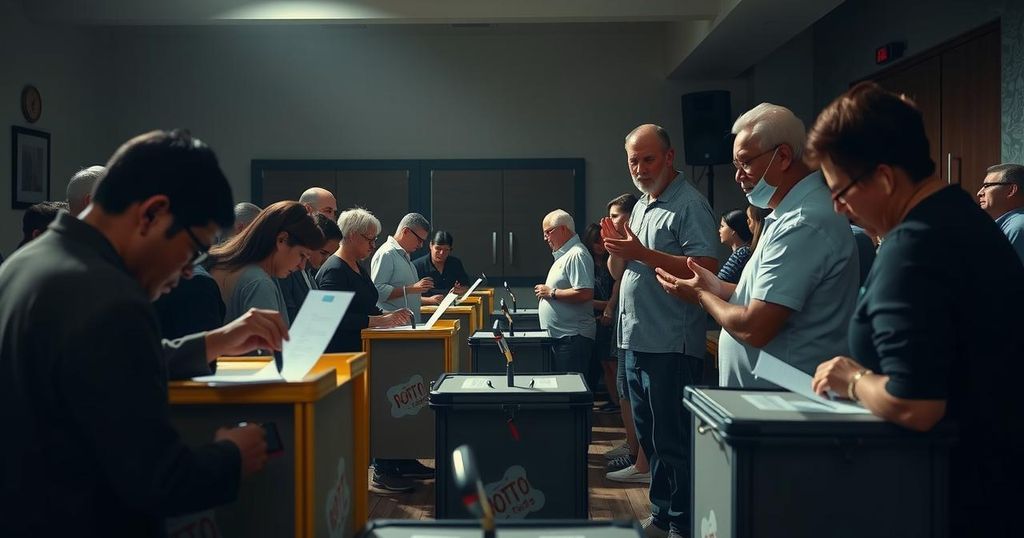Fringe Votes May Determine Outcome in Uruguay’s Close Presidential Election

Uruguay’s presidential run-off on November 24 is extremely close, with only 25,000 votes separating candidates Yamandu Orsi and Alvaro Delgado. The election outcome may be influenced significantly by erstwhile supporters of fringe candidates like Gustavo Salle. As neither candidate garnered an absolute majority in the first round, attracting the votes of smaller party supporters will be crucial for their success in this critical electoral contest.
On November 24, Uruguayans will cast their votes in a tightly contested presidential run-off between two centrist candidates, opposition center-left mayor Yamandu Orsi and ruling conservative candidate Alvaro Delgado. The outcome may hinge on the approximately 25,000 voters who opted for fringe candidates, including anti-vaccine activist Gustavo Salle, during the first round. This election reflects a notable trend in Uruguay, contrasting the sharp political divides observed globally, as the nation experiences relative stability with lowering inflation and rising employment rates despite ongoing issues such as high living costs and crime. Neither candidate secured an absolute majority in the previous elections, compelling them to court the support of voters from smaller parties and those who abstained. Analysts suggest that the appeal of the candidates remains limited, and the ultimate success may depend on voter turnout and decisions of those who previously supported fringe candidates.
Uruguay, a nation of 3.4 million, is in the midst of a significant electoral process, characterized by the upcoming presidential run-off on November 24. The current political landscape features a popular presidency, declining inflation, and improvements in employment, despite prevalent issues such as economic inequality and crime. The candidates vying for leadership, Orsi and Delgado, are centrist figures, which may contribute to the lack of enthusiasm among voters, as there is little perceived desire for drastic political changes. The election serves as a microcosm of broader global political dynamics, highlighting the relevance of fringe votes in determining the outcome of closely contested races.
As the run-off approaches, the significance of fringe candidate support cannot be overstated. Candidates Orsi and Delgado’s strategies must effectively address the approximately 8% of voters from smaller parties and those who abstained in the first round. Should voter turnout falter or if protest votes increase, the center-right coalition is likely to benefit, necessitating that the Broad Front must secure fresh support to surpass the governing coalition for a potential victory. Thus, the election outcome remains uncertain and heavily contingent on the decisions of a divided electorate.
Original Source: www.usnews.com







